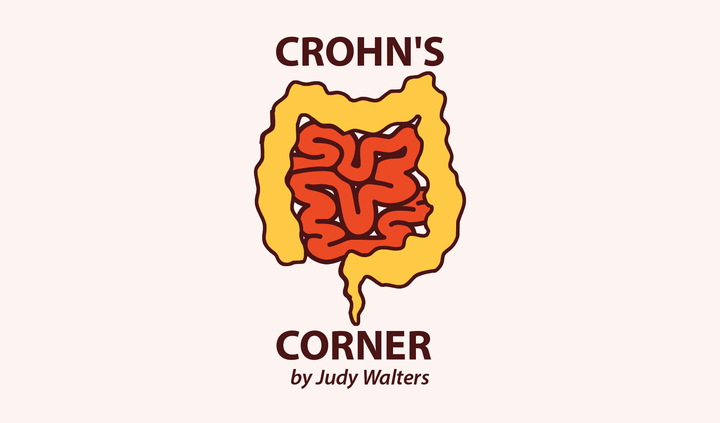
Back when I was younger, I never asked my doctors questions. Through infertility treatment, two pregnancies with my daughters, and the occasional illness that required a doctor’s visit, I just sort of did whatever the doctors told me, not questioning anything. I remember once asking my OB about something and how annoyed she was by the question. I avoided doing that again.
Then came Crohn’s.
I started out the same way, not questioning anything. My internist gave me the referral to the GI. I didn’t ask for other options in case I didn’t like that particular GI — and I was lucky I wound up loving her — and I didn’t question what procedures or medicines I was going to take. I didn’t question when I could get appointments. I just did everything everyone said.
Then one night I had an episode that sent me to the hospital. I was just recovering from a Crohn’s flare and I had taken a sleeping pill to help me get some rest. I immediately fell asleep in a way that I guess scared my then-very young daughter and my husband, and he called 911 when he couldn’t rouse me. I was sent to the hospital overnight for tests and then brought to a room. The doctors thought it was neurological and sent for someone they said was tops in the field.
I immediately didn’t like this tops-in-the-field doctor. I was in the bathroom when he came into my room for my first examination and he pounded on the door. “I’m here,” he said. “You need to come out.”
Then he did a quick neurological evaluation and wanted to put in an IV. There seemed to be no reason for an IV since I was OK at that point, and I refused it. Then he started telling me that even though my tests were fine, he wanted to do more tests. And he insisted on putting me on a medication for seizures even though it was clear I hadn’t had one.
When I started asking questions about why he was making these particular decisions, he tried to look at my mother, who was there with me, and tell her instead. I held his gaze. “I’m your patient,” I said. “You should be speaking to me.” He looked horrified.
The medicine he prescribed made me so tired that I couldn’t keep my eyes open at all. I was unable to care for my daughters. The doctor wouldn’t allow me to drive. I kept passing all the tests he made me take but he wouldn’t budge. My GI, whom I did trust, gave me her theory about what happened and it made sense. I tried to share it with the awful neurologist but he wouldn’t listen to me.
Finally, another doctor I trusted told me this particular neurologist had a monopoly on all the patients in the area — and he was known to be difficult, full of himself. This other doctor told me to go farther away from my town to find help from another neurologist who had no ties to my area. Once I did that, I was quickly cleared to drive and to get off that horrible medication.
I learned a lot from that experience. I learned that I had every right to question my doctors and my treatment and that if I wasn’t happy, I could go elsewhere. I learned that doctors don’t always know everything. I learned that I could (and should) be in control of my health. I’ve applied that lesson to all of my doctors since then — I’ve switched when I haven’t been happy, and I’ve questioned medications and treatments when I’ve felt the need.
What I’ve found is that good doctors will, in fact, be open to discussing options with you. They won’t dictate to you like you’re a child. They will listen to you and try to work with you. As you navigate your own health, remember that. Don’t be afraid to stick up for yourself. It’s your health and your body. You have that right.
***
Note: IBD News Today is strictly a news and information website about the disease. It does not provide medical advice, diagnosis, or treatment. This content is not intended to be a substitute for professional medical advice, diagnosis, or treatment. Always seek the advice of your physician or other qualified health provider with any questions you may have regarding a medical condition. Never disregard professional medical advice or delay in seeking it because of something you have read on this website. The opinions expressed in this column are not those of IBD News Today or its parent company, BioNews Services, and are intended to spark discussion about issues pertaining to IBD.


Thank you for this article! As a physician and patient advocate, I completely agree. Patients must feel comfortable speaking up for themselves and doctors must allow them to do so.